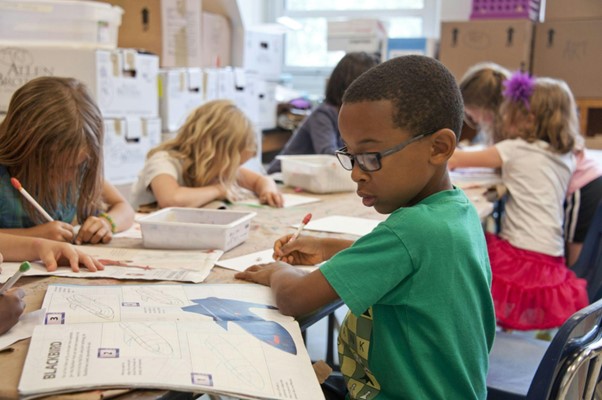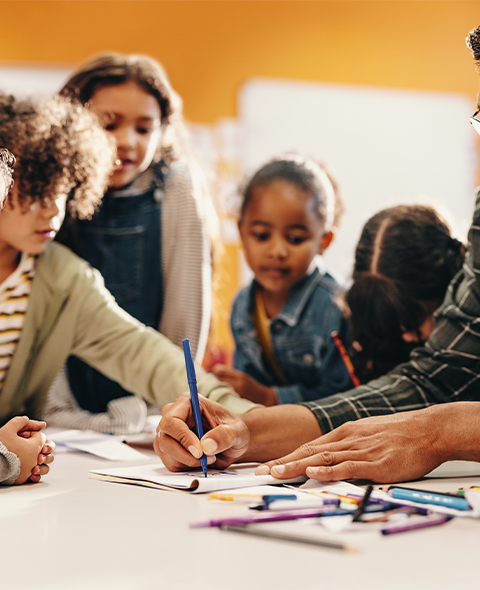Children’s education is a foundational aspect of their overall development, laying the groundwork for future success, well-being, and social integration. It extends beyond the classroom and includes fostering emotional intelligence, creativity, and social skills. In today’s rapidly evolving world, where traditional education methods meet new technological innovations, ensuring that children receive a well-rounded education is essential to preparing them for the challenges and opportunities they will face in the future.
1. The Crucial Role of Early Childhood Education
The early years of a child’s life play a significant role in shaping their cognitive, emotional, and social development. Research shows that early childhood education (ECE) programs can have a lasting impact on a child’s academic performance, behavior, and attitudes toward learning. High-quality early education offers children the chance to learn through play, exploration, and structured activities, all of which help them develop essential skills.
Children who attend strong early education programs often show better academic results, improved social behaviors, and a greater likelihood of graduating high school and pursuing higher education. Early learning also provides a unique opportunity to identify and address developmental delays or learning disabilities before they become significant challenges.
2. Creating a Positive Learning Environment
The environment in which children learn is just as important as the curriculum they follow. Whether at home, school, or extracurricular settings, a nurturing and engaging environment fosters a love for learning. A positive learning space should feel safe, inclusive, and stimulating, offering opportunities for exploration and creativity.
Parents and caregivers can contribute significantly to creating this type of environment. By being actively involved in their child’s learning process, offering praise and support, and balancing academic tasks with play, they help build a healthy learning routine. In schools, teachers should create classrooms that cater to various learning styles, ensuring every child’s needs are met.
3. The Vital Role of Parents and Caregivers
Parents and caregivers are key players in their children’s educational journey. Studies have consistently shown that when parents are involved in their child’s education, their children tend to perform better academically and develop stronger social skills. Regular communication with teachers, participation in school events, and reinforcement of learning at home can make a substantial difference in a child’s academic success.
One of the most powerful ways parents can support their child’s education is by promoting a growth mindset. Children who believe that their abilities can improve through effort are more likely to embrace challenges, persist through difficulties, and enjoy the learning process. Additionally, fostering curiosity at home—by asking open-ended questions, reading together, and encouraging independent thinking—also nurtures a child’s love for learning.
4. Integrating Technology into Education
Technology has transformed how children access information and interact with educational content. While it’s important to balance screen time with other activities, educational tools like apps, videos, and interactive platforms can enhance children’s learning experiences. Online platforms often provide personalized learning opportunities, helping children learn at their own pace and reinforcing concepts they may struggle with in the classroom.
Parents and educators should, however, ensure that children use technology responsibly. Teaching children about online safety, managing distractions, and setting healthy limits on screen time are essential parts of incorporating technology into their education.
5. Social and Emotional Learning (SEL)
Children’s education extends far beyond academics. Social and emotional learning (SEL) focuses on developing skills such as emotional regulation, empathy, decision-making, and relationship-building, all of which are vital for success in life. Research has shown that SEL improves mental health, reduces behavioral issues, and enhances overall academic achievement.
Incorporating SEL into the school curriculum helps children navigate social situations, manage their emotions, and understand themselves and others better. At home, parents can support SEL by modeling emotional intelligence, engaging in active listening, and teaching conflict resolution skills.
6. Fostering Critical Thinking and Creativity
Encouraging critical thinking and creativity in children is crucial for their cognitive development. These skills allow children to approach problems with a fresh perspective, make informed decisions, and think independently. Critical thinking involves questioning assumptions, analyzing information, and considering multiple viewpoints, while creativity involves thinking outside the box and coming up with original solutions.
Parents and educators can foster these skills by offering children opportunities for hands-on learning. Activities like puzzles, art projects, and science experiments stimulate the brain and encourage problem-solving. Allowing children time for free play and exploration also enhances their creativity and critical thinking abilities.
7. Supporting Children with Learning Differences
Every child is unique, and some may have learning differences such as ADHD, dyslexia, or autism. It’s crucial that both parents and educators recognize these differences and offer tailored support to help children thrive. Individualized Education Plans (IEPs) in schools are designed to provide children with the tools and strategies they need to succeed based on their specific needs.
Parents can collaborate with educators and specialists to ensure their child receives the necessary accommodations. Early intervention is often key in addressing learning challenges, as identifying issues early can lead to more effective support.
8. The Future of Education
As technology continues to evolve and the world becomes more interconnected, the future of education will be shaped by new teaching methods, digital innovations, and changing societal demands. However, the core principles of good education—personalized learning, emotional support, and the fostering of critical skills—will remain central to any educational approach.
Investing in children’s education is one of the best ways to ensure they are prepared for the future. By focusing on both academic knowledge and emotional intelligence, we help create a generation of well-rounded, resilient, and capable individuals who are ready to succeed in a rapidly changing world.
Conclusion
Supporting children’s education is a collective effort that involves parents, caregivers, teachers, and the community. From the crucial early years to fostering critical life skills like emotional intelligence and problem-solving, every aspect of education contributes to a child’s growth and future success. By providing children with the right resources, guidance, and opportunities to learn, we empower them to reach their full potential and build a better future for themselves and society.



